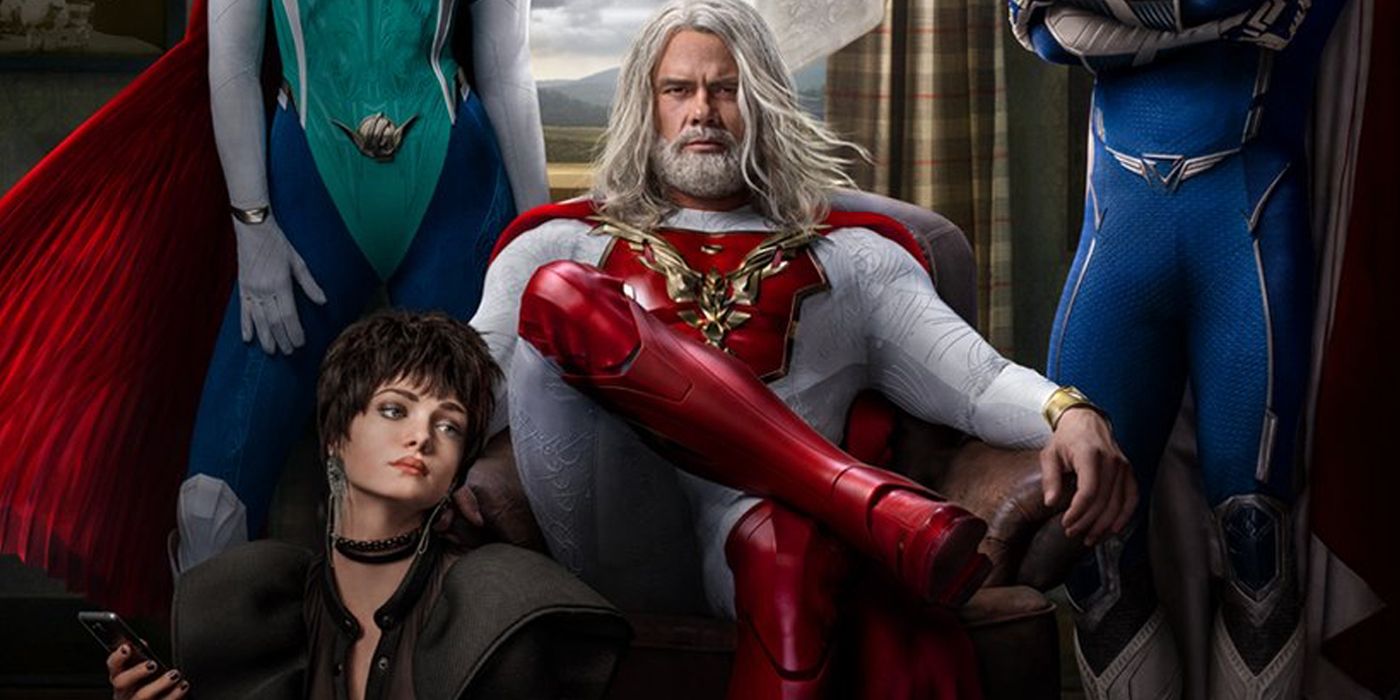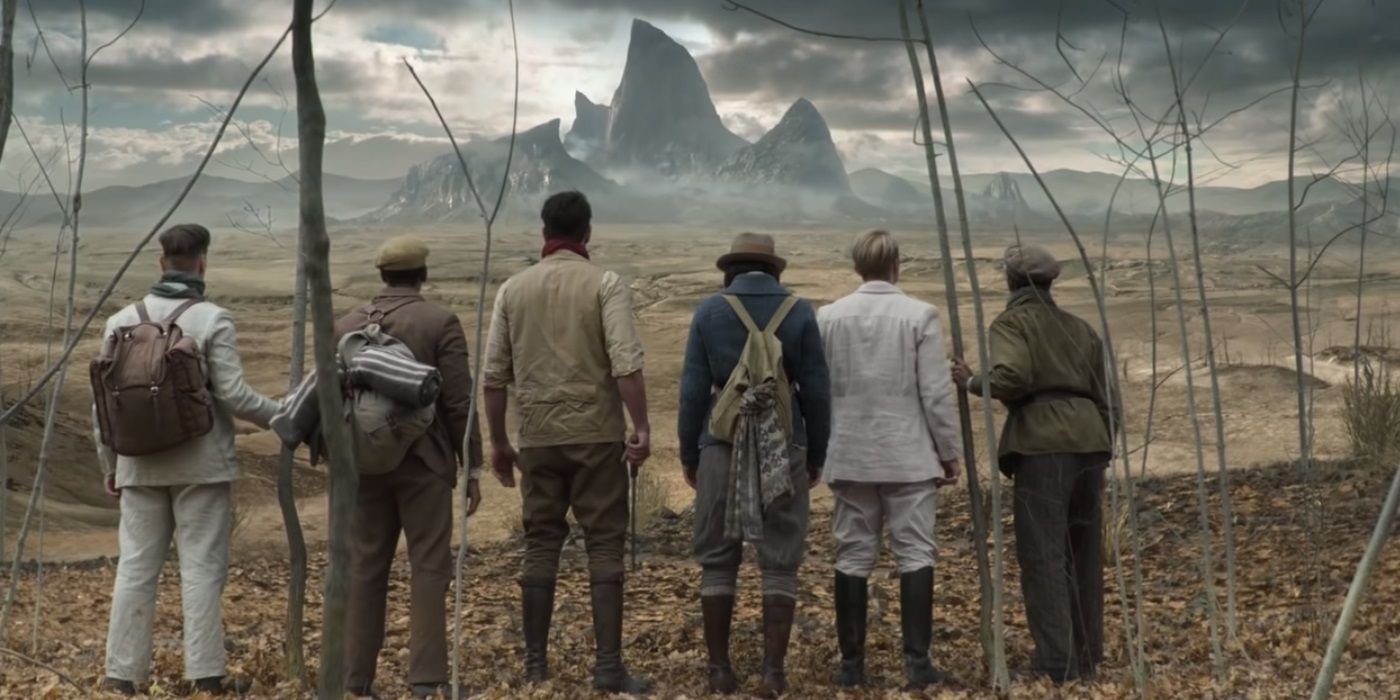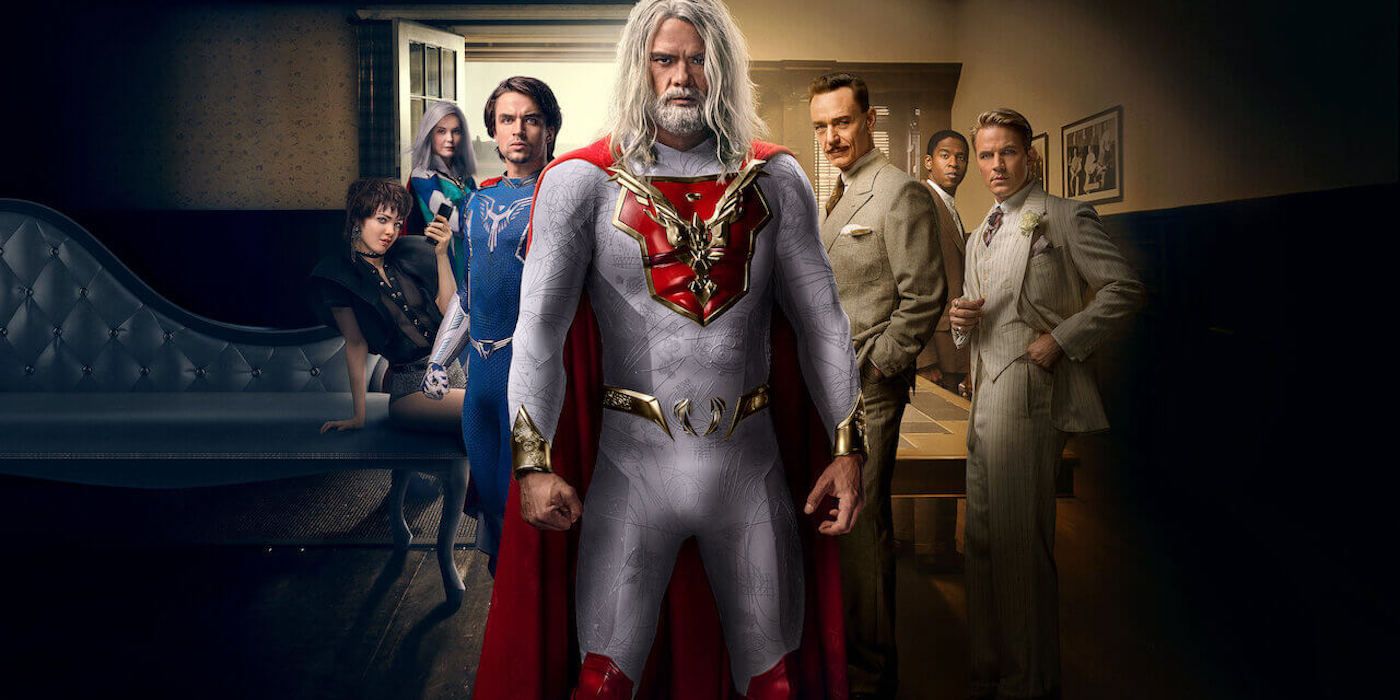WARNING: The following contains spoilers for Season 1 of Jupiter's Legacy, now streaming on Netflix.
The Golden Age of Superheroes serves as the backbone for most of the characters in Jupiter's Legacy. Beginning at a time before the atomic age, Golden Age characters like Superman were often portrayed as heroes who stood on one side of a distinct line between good and evil. Their thoughts on right and wrong were summed up in Jupiter's Legacy with a code that banned heroes from killing or ruling others. However, as times changed, the code began to lose its meaning. As its meaning died, so did the Golden Age.
Maintaining the spirit of the 1930s, the origin of the Union of Justice had a foundation in exploration. Upon discovering a hidden island, six people were granted powers and acted as protectors of the American people. At the time, most of the enemies were easily thwarted by the might of the Union, whose main goal was to maintain the code and set a positive example for others.
None believed in the code more than Utopian (Josh Duhamel), who, even decades later, still believed that the rules he established mattered more than anything. However, as the decades continued, the world changed and the line separating good and evil held more shades of grey. By the present time, Utopian became more of an outlier as the idea of killing villains became more accepted.
The comics that came decades after Action Comics #1, gradually transitioned into a darker story. Before, violence was often shown as fistfights, but as the millennium inched closer, heroes like Spawn and the Punisher became the new fad. Their ultra-violence and ambiguous moral code were the new aesthetic for comic readers of the time. Meanwhile, classic characters like Superman struggled to stay relevant in a world that had clearly lost touch with truth, justice and the "American way."
Like Superman in the '90s, Utopian's brand of justice was quickly becoming a passing phase. Rather than flow with the current like his brother Brainwave (Ben Daniels), he chose to fight against it. But his stubbornness left him vulnerable to a more modern evil. In the Golden Age, villains were always portrayed as megalomaniacs or mobsters. But in the modern age, evil was more complex, with villains often seeing themselves as the hero of their own story.
The season's conclusion revealed that Utopian's greatest enemy is actually his brother. Brainwave believes Utopian and his code is an outdated idea that holds superheroes back. Working from the shadows, he created public distrust and doubts in his brother's son, Paragon (Andrew Horton), that could ruin their father/son relationship. Brainwave represents a new age of villains that Utopian and his ideals can never compete with. To defeat this new threat, the decades-old code must be demolished, and in doing so, the Golden Age of Heroes will well and truly be dead.
Netflix's Jupiter's Legacy stars Josh Duhamel as The Utopian, Ben Daniels as Brainwave, Leslie Bibb as Lady Liberty, Elena Kampouris as Chloe Sampson, Andrew Horton as Brandon Sampson, Mike Wade as The Flare, Anna Akana as Raikou and Matt Lanter as Skyfox. Season 1 is available on Netflix now.



